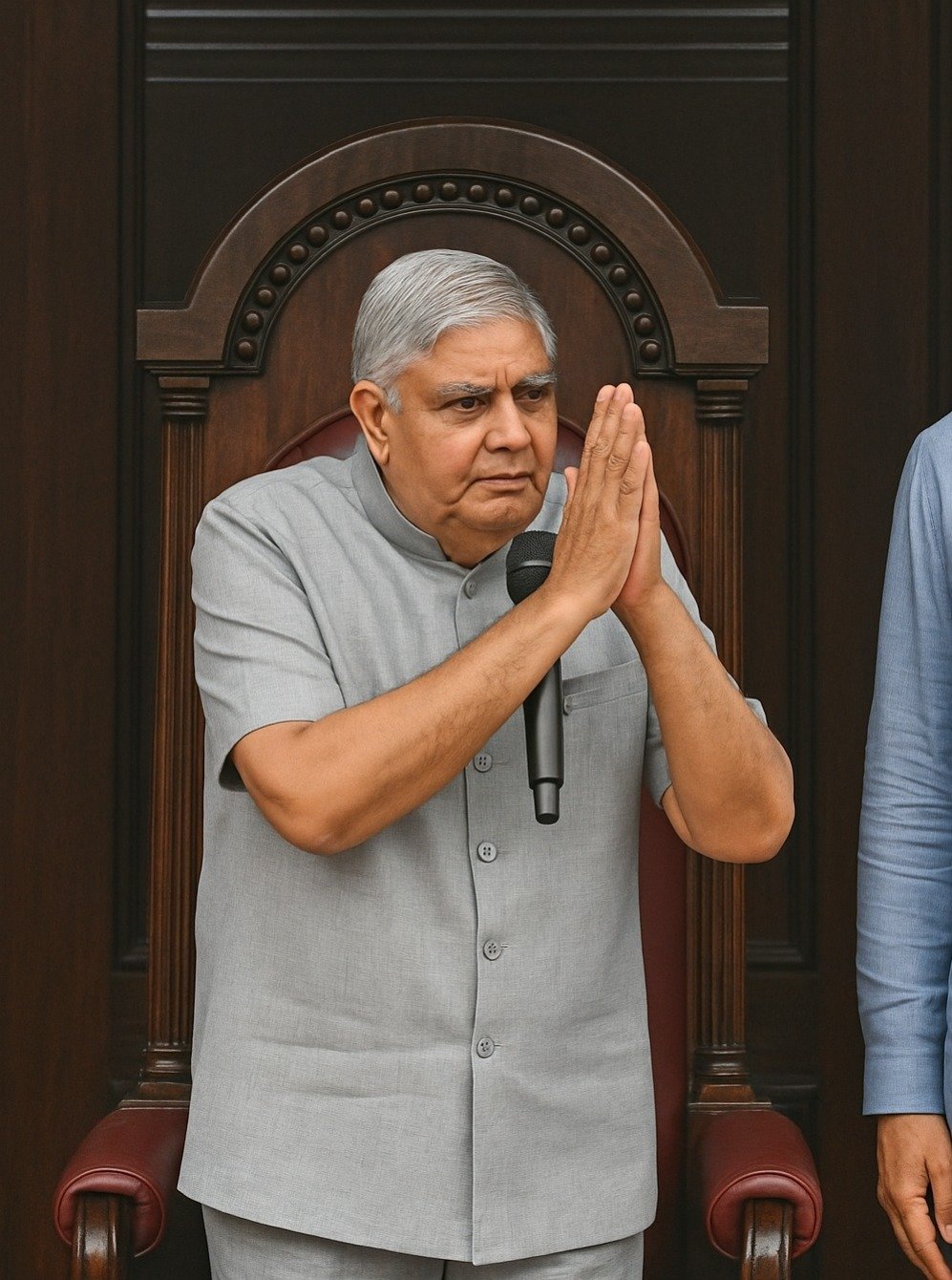
In the shifting sands of Indian politics, few figures have blended grassroots authenticity with constitutional command quite like Jagdeep Dhankhar. From the sunburnt soils of Rajasthan to the marble-pillared halls of Parliament, Dhankhar’s journey is not just about rising through the ranks—it is about reshaping the very character of the positions he held, most notably that of the Vice President and Chairman of the Rajya Sabha.
The Journey from Jhunjhunu to Raisina Hill
Born in 1951 in the Kithana village of Rajasthan's Jhunjhunu district, Jagdeep Dhankhar emerged from a modest Jat agrarian family. His early schooling was in Hindi medium, and he went on to study physics and then law at the University of Rajasthan. His legal career quickly took off, leading him to practice in the Rajasthan High Court and later in the Supreme Court of India.
Dhankhar entered active politics during the turbulent early 1990s, serving as Minister of State for Parliamentary Affairs under Prime Minister Chandra Shekhar. Though his initial stint in Parliament was brief, it offered a vital initiation into the legislative process. For years afterward, Dhankhar focused on his legal career, earning a reputation as a combative courtroom strategist and a loyal defender of constitutional principles.
Governor of West Bengal: The Combative Custodian
When he was appointed as the Governor of West Bengal in July 2019, Dhankhar’s administrative style drew national attention. His frequent confrontations with the Trinamool Congress government led by Mamata Banerjee placed him at the epicenter of Centre-State friction. While his critics labelled him confrontational and partial, Dhankhar insisted he was only defending the Constitution and federal decorum.
His tenure as Governor was marked by a visible assertiveness—often questioning the state government’s decisions and refusing to be a ceremonial figurehead. He transformed the role of Governor into a more proactive, sometimes provocative, institution—pushing the boundaries of gubernatorial intervention and sparking a nationwide debate on the role's limits and obligations.
A Vice President Who Brought Action to the Chair
In August 2022, Dhankhar was elected as the 14th Vice President of India, succeeding M. Venkaiah Naidu. His appointment was not just an elevation in rank—it represented a change in tone and style. Known for his articulate oratory and deep knowledge of the Constitution, Dhankhar’s chairmanship of the Rajya Sabha was anything but active.
Unlike predecessors who maintained a more subdued approach, Dhankhar redefined the Vice President’s role into an active enforcer of parliamentary discipline. He frequently took strong positions on the supremacy of Parliament vis-à-vis the judiciary, reiterating that no institution could overstep the mandate of the elected legislature. In his view, separation of powers was not merely a legal tenet but a democratic obligation.
During his tenure, Dhankhar suspended a record number of MPs (over 150) due to repeated disruptions and violations of conduct. While Opposition parties criticized this as authoritarian, Dhankhar argued it was essential to restore the dignity of debate and deliberation. “It’s painful,” he said once, “but necessary to uphold the integrity of Parliament.”
Notably, Dhankhar’s interventions were never limited to procedure alone. He oversaw several technological and operational upgrades in Rajya Sabha proceedings. The televising of significant procedural clashes, including his own rebuttals to MPs questioning his rulings, drew wide public attention. The Rajya Sabha TV channel, often dismissed as dull, became a battleground of constitutional education under his watch.
A Surprise Exit, A Lasting Impact
Dhankhar’s abrupt announcement to step down from public life after his term left both MPs and parliamentary staff stunned. On July 21, 2025, without prior hints, he began his farewell by meeting MPs and staff informally. By 3:53 PM, his resignation letter had been submitted, citing personal reasons and “deep reflection on the role of public life in a democracy where dignity must triumph over disruption.”
Though he kept the details of his departure private, speculation mounted that tensions with the government and frustration with the increasingly turbulent sessions may have played a role. His final speech was short and philosophical—an appeal for restoring constitutional sanity and a veiled criticism of partisanship consuming parliamentary decorum.
Legacy of a Disruptor in Defense of Order
What sets Jagdeep Dhankhar apart is not just his career trajectory but the deliberate intensity with which he approached every role. As Governor, he was fearless. As Vice President, he was firm. Both roles saw him defending the Constitution not as a passive book of rules but as a living, breathing contract between state and citizen.
In a political culture that often rewards ambiguity, Dhankhar remained resolutely clear—sometimes to the point of contention. Yet, his insistence on procedure, transparency, and institutional accountability has carved him a place in the annals of Indian constitutionalism. Whether seen as a reformer or a disciplinarian, his time in the Rajya Sabha will be remembered as a stormy but significant chapter in India’s parliamentary evolution.
As he steps away from the public eye, the question remains: was Jagdeep Dhankhar too bold for the times, or just bold enough to remind the system of its forgotten duties?
Either way, Indian politics may not see another Vice President who used the Chair not just to preside—but to provoke introspection.





















